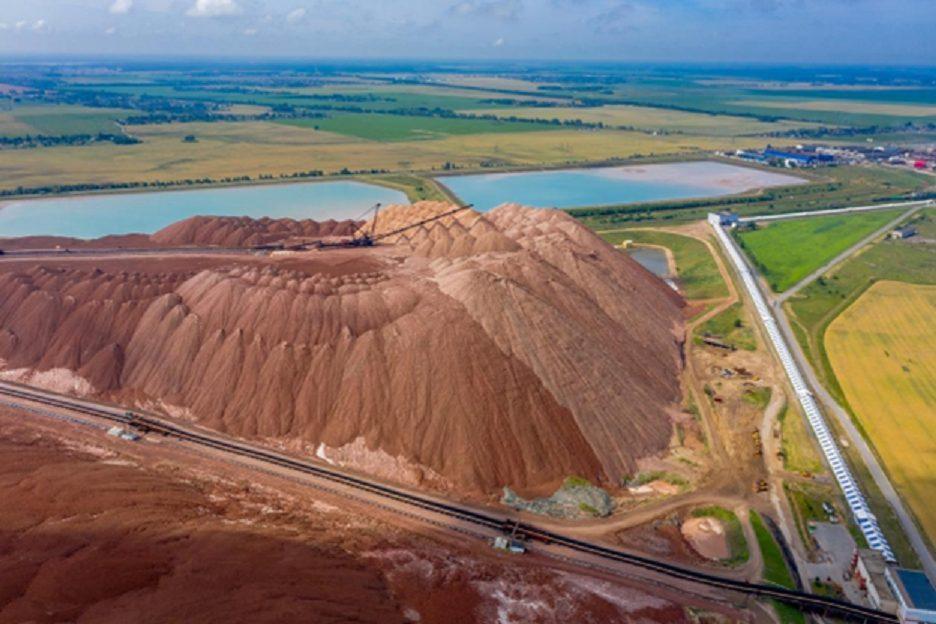
Potash is a mineral that plays a critical role in agriculture as a fertilizer. It is necessary for crop yields, and its application is one of the primary ways to ensure food security globally. However, the world’s potash reserves are slowly depleting, making new mining projects essential to maintaining adequate fertilizer supplies. The importance of new potash mining projects cannot be understated, as they are necessary to ensure food security for the planet’s growing population.
One example of a critical new potash mining project in development is the Autazes Potash Project by Brazil Potash. The project is located outside of Manaus, Brazil, and is situated near the Madeira River, one of the Amazon’s major tributaries. The project is expected to be the Brazil’s largest potash mining operation, contributing significantly to the global potash supply. The Autazes Potash Project is also expected to create new job opportunities for the local community and boost the region’s economy.
The advantageous location of the project offers numerous benefits such as the use of renewable electric power from the Brazilian grid and a well-connected transportation network that links the region to Brazil’s major farmers. The company holds multiple mining rights in the Amazon potash basin, and they anticipate the project has the capability of producing up to 2.2 million tonnes of potash per annum.
Less Overall Farmland
The world’s population is growing, and the demand for food is increasing with it. However, the amount of arable land globally is decreasing. Many areas are being converted to other uses such as urban development and industrialization, which means the world needs to produce more food on less land. This makes the use of fertilizers even more critical as it allows farmers to optimize the use of the available land and increase crop yields.
Bolstering the Global Fertilizer Supply Chain
New mining projects have been launched globally to meet the growing demand for potash. These projects not only help to bolster the global fertilizer supply chain but also provide new job opportunities for the local communities. Some of these projects are in developing countries, which can benefit from the economic boost that comes with mining. It can help to develop new infrastructure, bring in new technologies, and provide long-term employment opportunities.
10 Billion People to Feed by 2050
The United Nations estimates that the world population will reach 10 billion people by 2050, which will require a 70% increase in global food production. Without adequate access to fertilizer, achieving this goal will be difficult. New potash mining projects are essential to ensuring food security for the world’s growing population. They will contribute to the availability of fertilizer, which is necessary to increase agricultural production and meet the growing demand for food.
More Demand for Global Fertilizer Market
The global fertilizer market is projected to grow significantly, with increasing demand from developing countries. As these countries continue to modernize and industrialize, the need for agricultural fertilizers will continue to rise. This demand will lead to a rise in the prices of fertilizers, making new potash mining projects even more critical to meet the growing demand.
New potash mining projects are essential to ensure food security for the world’s growing population. With the demand for food increasing, the need for agricultural fertilizers will also rise. These projects not only provide a much-needed boost to the global fertilizer supply chain but also create new job opportunities for local communities. With the increasing global demand for fertilizer, new mining projects will be necessary to meet the needs of a growing population. Potash mining projects like the Autazes Potash Project by Brazil Potash have a significant role to play in meeting the growing demand for fertilizer and ensuring food security for the world’s population.
Tradersdna is a leading digital and social media platform for traders and investors. Tradersdna offers premiere resources for trading and investing education, digital resources for personal finance, market analysis and free trading guides. More about TradersDNA Features: What Does It Take to Become an Aggressive Trader? | Everything You Need to Know About White Label Trading Software | Advantages of Automated Forex Trading








